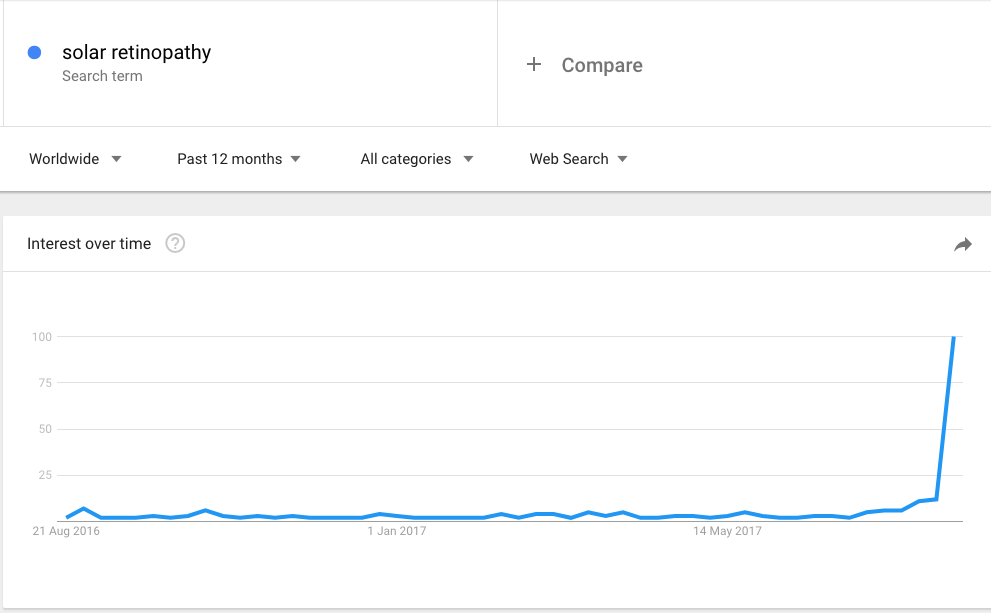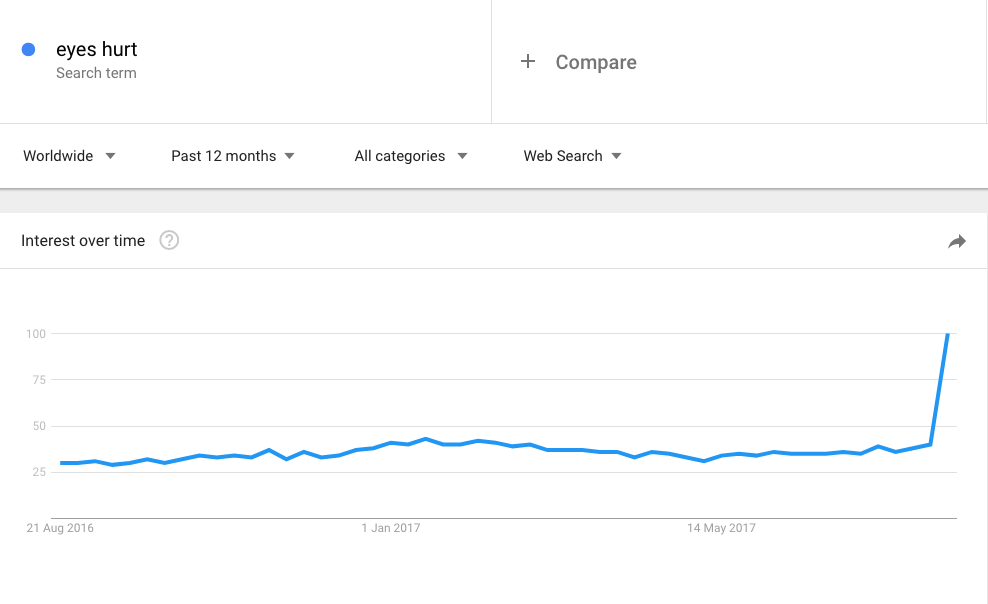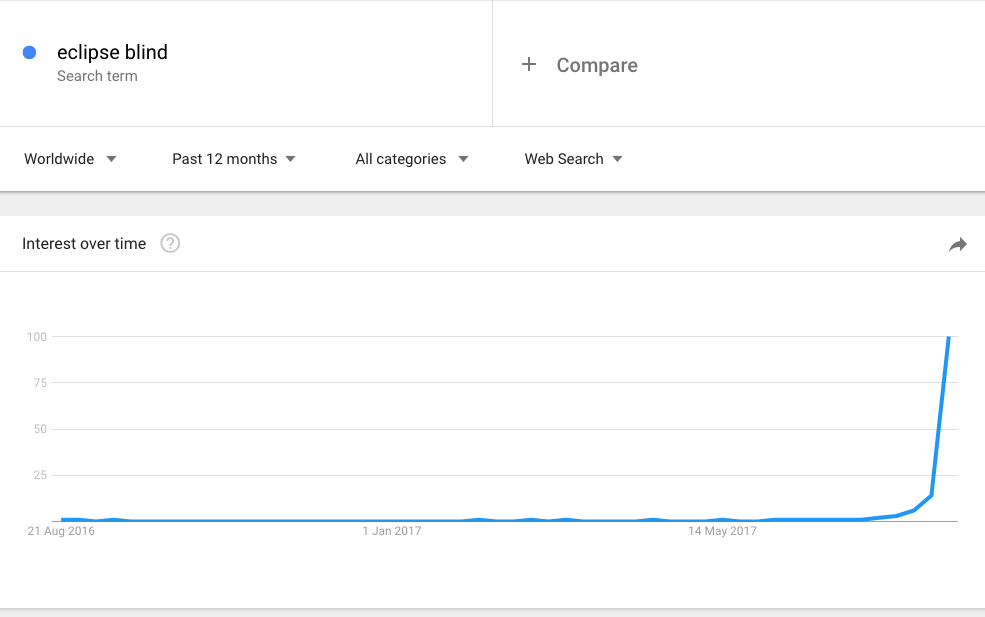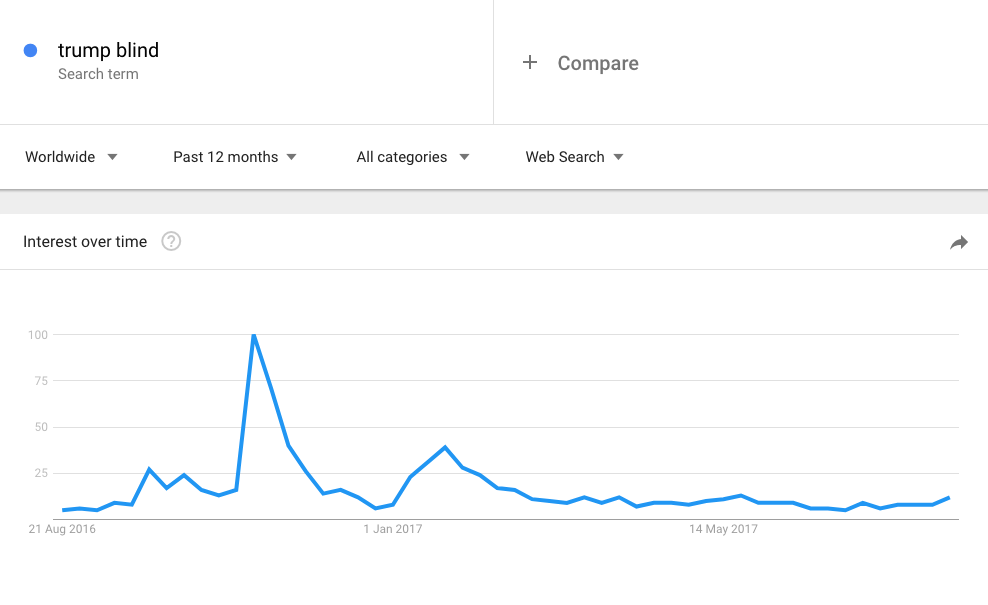If you can still read this, congratulations! You’re not blind from staring directly into the eclipse (yet).
Then again, eye damage from viewing a solar eclipse can take days to manifest. Using whatever eyesight they had left, freaked-out Americans turned to Google for advice.
Videos by VICE
Google Trends showed a sharp uptick in searches for SEO-friendly phrases like “solar eclipse headache,” “solar eclipse blind,” “eyes hurt,” “seeing spots,” “solar retinopathy,” “headache after eclipse,” “accidentally looked at eclipse,” “headache after solar eclipse,” “burned retinas,” “eclipse headache,” and “eclipse blind.”



Experts warn that staring into a solar eclipse for any amount of time — even just a few seconds — could result in permanent blurry vision or blindness because the dark moon passing over the sun essentially cancels out the normal burning sensation that makes people look away from bright light.
It’s often hard to tell whether damage has occurred, since the exposure is painless and symptoms can crop up for weeks afterward. Symptoms that suggest short-term damage include eye pain and light sensitivity, often occurring within 24 hours of exposure, Linda Chous, an ophthalmologist and chief eye care officer for UnitedHealthcare, told NBC. Long-term symptoms include a loss of central vision — including a dark spot or hole in vision — typically showing up anytime within two weeks after exposure.
But sadly for President Donald Trump, who was photographed looking directly into the eclipse twice in a span of less than five minutes, Americans seem less concerned with his ocular health.

Searches for “Trump blind” actually peaked in November 2016 — around the same time he promised to put his businesses into a blind trust in an effort to prevent a conflict of interest between the White House and the Trump Organization.
In that sense, Trump does not appear to be blind at all — according to ProPublica, the trust’s terms have since been changed to allow Trump to withdraw money from the businesses whenever he wants.




